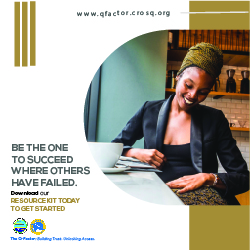Capacity Developed in CARIFORUM Despite Pandemic
- crosqblog
- on Apr, 28, 2021
- Category 11th EDF EPA TBT Programme, Cooperation
- Comments Off on Capacity Developed in CARIFORUM Despite Pandemic
Capacity building is often a catch-phrase in many developmental projects. Sometimes it’s clear what that term means, in other instances – not so much! What the Technical Barriers to Trade Component of the 11th EDF-EPA Programme has allowed CARIFORUM beneficiary states to practically do is prove this term true.
Since the last quarter of 2020, the programme, funded by the European Union, has been looking at ways to develop competence within the region to assist with the improvement of some of the value chains in the region that show tremendous potential for growth. The activity is what we in the quality world called a CALIDENA workshop. The CALIDENA methodology, which was developed by our programme partner – the German National Metrology Institute (PTB), and consultants Mesopartner, is one that focusses on “a participatory analysis of quality requirements in value chain(s)”. It is demand-driven and brings together all the stakeholders in a given value chain to discuss the quality-related issues in that chain, finding ways to address and solve those issues with action plans and designed steps to increase quality and boost the product’s trading potential. According to Mesopartner, it is designed “to adjust the supply of quality services to the real demand of companies, particularly SMEs.




The above images are examples of previous CALIDENA interventions in Belize (shrimp value chain) and Suriname (string beans value chain).
Given the genesis of the methodology, it is often a process that is led externally, although it is customary to train facilitators in the region to assist.
The advent of the COVID-19 pandemic however, has made the necessity of regional expertise even more acute however, and instead, this 11th EDF-EPA project began the CALIDENA value chains experience with a call for interested persons in CARIFORUM to be trained in the methodology to assist their countries with all that goes into creating a successful intervention for the value chain. So, this value chain project has resulted in the training of nine new facilitators in the methodology, who are now integrated into the five teams created to assist with value chains in five countries. The trainees will still be working with an experienced mentor moving forward, with monthly meeting to keep the project moving forward and also cement the learnings and experience of each new facilitator and their teams.
The value chains currently being analysed for assistance in the programme are – cascarilla bark in The Bahamas; liquid petroleum gas in Belize; cocoa in Dominica; black castor oil in Jamaica and coconut milk in the Dominican Republic. The processes are well underway with the expected first report to be delivered soon.





